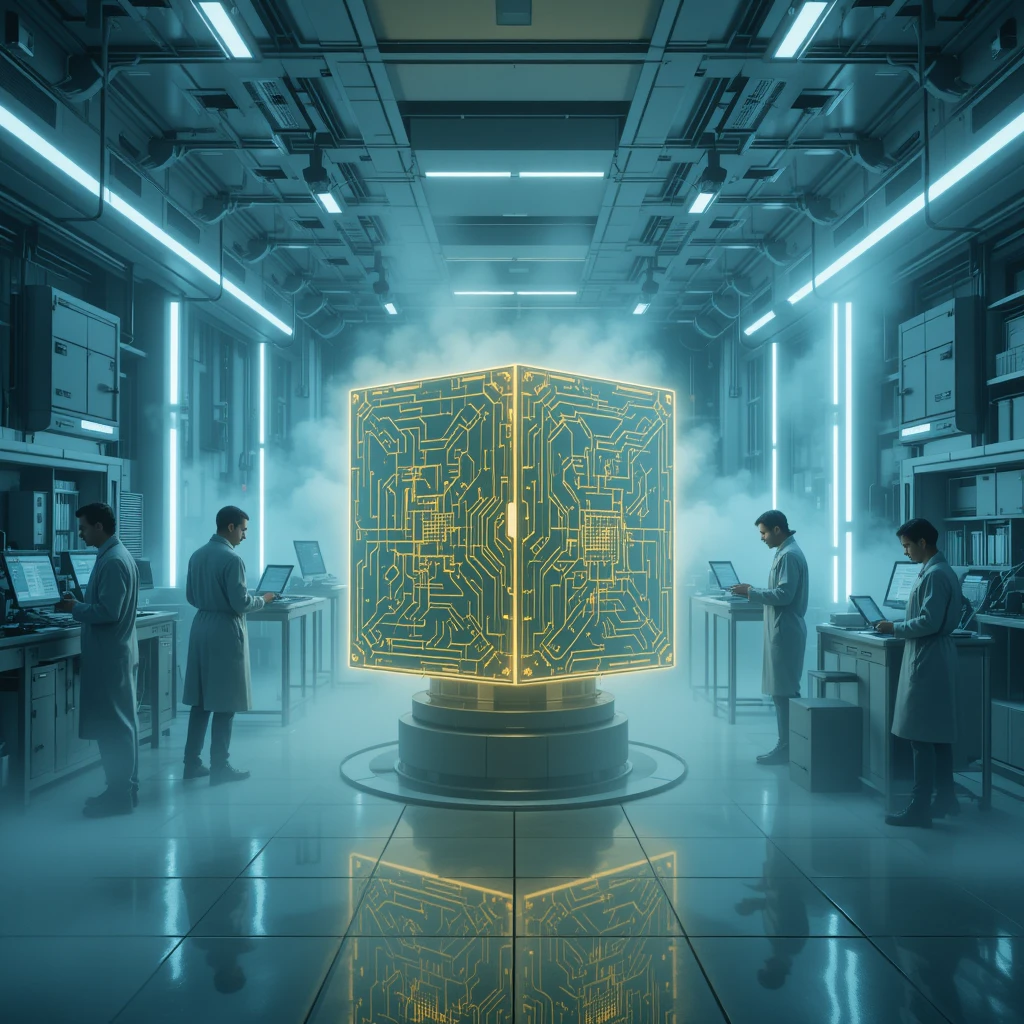Introduction to Quantum Supremacy
Imagine a world where complex problems that would take our most powerful supercomputers thousands of years to solve could be cracked in mere seconds. Sounds like science fiction, right? Well, buckle up, because we’re about to dive into the mind-bending realm of quantum supremacy, where the impossible becomes possible.
Table of Contents

In 2019, Google made headlines with a ground breaking announcement: they had achieved quantum supremacy. But what exactly does that mean, and why is it such a big deal? Let’s embark on a journey to unravel this quantum mystery and explore how Google pulled off this seemingly impossible feat.
Understanding Quantum Computing
Before we can grasp the concept of quantum supremacy, we need to get our heads around quantum computing. Unlike classical computers that use bits (0s and 1s), quantum computers operate on a whole different level.

Quantum Bits (Qubits)
At the heart of quantum computing are qubits. These aren’t your average bits – they’re the superheroes of the computing world. Qubits can exist in multiple states simultaneously, thanks to a quirky quantum property called superposition.

Superposition and Entanglement
Superposition is like being able to be in two places at once. It allows qubits to process multiple possibilities simultaneously. But that’s not all – qubits can also be entangled, meaning they’re connected in ways that defy classical physics. It’s like having a telepathic link between particles, no matter how far apart they are.

The Quest for Quantum Supremacy
Scientists and tech giants have been racing to achieve quantum supremacy for years. But what exactly is it? Simply put, quantum supremacy is the point at which a quantum computer can perform a task that would be practically impossible for a classical computer to complete in a reasonable timeframe.
It’s like pitting a supersonic jet against a bicycle in a race around the world. There’s just no comparison.

Google’s Breakthrough
Enter Google, with their team of brilliant minds and cutting-edge technology. In October 2019, they announced that they had finally cracked the code to quantum supremacy.

The Sycamore Processor
At the centre of Google’s breakthrough was their Sycamore processor. This isn’t your run-of-the-mill CPU – it’s a 54-qubit processor that operates at near absolute zero temperatures. Talk about keeping your cool under pressure!

The Quantum Supremacy Experiment
Google’s team designed a fiendishly complex problem that would take even the most advanced classical supercomputer thousands of years to solve. The challenge? Generate random numbers and verify their distribution.
Sounds simple, right? Not so fast. The complexity of this task grows exponentially with each added qubit. It’s like trying to predict every possible outcome of flipping 54 coins simultaneously – the possibilities are astronomical.
Here’s the kicker: Google’s Sycamore processor solved this problem in just 200 seconds. That’s not a typo – we’re talking about a task that would take 10,000 years for a classical computer, completed in less time than it takes to microwave a burrito.

Implications of Quantum Supremacy
Now that we’ve picked our jaws up off the floor, let’s consider what this means for the future.

Scientific Advancements
Quantum supremacy opens up a whole new world of scientific possibilities. From simulating complex molecular structures for drug discovery to optimizing financial models, the potential applications are vast and varied.
Technological Impact
The achievement of quantum supremacy isn’t just a scientific milestone – it’s a technological revolution in the making. It could lead to breakthroughs in artificial intelligence, cryptography, and data analysis that we can barely imagine today.
Challenges and Criticisms
Of course, no ground-breaking achievement comes without its fair share of scepticism and challenges.
IBM’s Response
IBM, another heavy hitter in the quantum computing world, wasn’t about to let Google have all the glory. They argued that the same task could be performed on a classical computer in just 2.5 days, not 10,000 years. It’s like saying, “Sure, your supersonic jet is fast, but our bicycle can still get the job done… eventually.”
Practical Limitations
While Google’s achievement is undoubtedly impressive, we’re still a long way from seeing quantum computers in our homes or offices. Current quantum systems are extremely delicate, requiring specialized environments to operate. It’s like having a race car that can only drive on one specific track under perfect conditions.
Future of Quantum Computing
So, what’s next in the world of quantum computing?
Potential Applications
As quantum computers become more powerful and stable, we could see them tackling problems that are currently insurmountable. From optimizing supply chains to predicting climate patterns with unprecedented accuracy, the potential applications are limitless.
Ongoing Research
The race for quantum supremacy isn’t over – it’s just beginning. Research teams worldwide are working tirelessly to develop more powerful quantum processors, more stable qubits, and practical applications for this mind-bending technology.
Conclusion
Google’s achievement of quantum supremacy is more than just a technological milestone – it’s a glimpse into a future where the impossible becomes possible. While we’re still in the early days of quantum computing, the potential for revolutionary advancements across various fields is enormous.
As we continue to push the boundaries of what’s possible with quantum computing, who knows what other “impossible” feats we might achieve? One thing’s for sure – the future of computing is looking decidedly quantum.
FAQs
- What is the difference between quantum computing and classical computing?
Quantum computing uses qubits that can exist in multiple states simultaneously, while classical computing uses bits that are either 0 or 1.
- How fast is Google’s quantum computer compared to a classical supercomputer?
Google’s Sycamore processor solved a specific problem in 200 seconds that would take a classical supercomputer about 10,000 years.
- Can quantum computers replace classical computers for everyday tasks?
Not yet. Quantum computers are currently specialized for solving specific types of complex problems and aren’t suitable for everyday computing tasks.
- What are some potential real-world applications of quantum computing?
Potential applications include drug discovery, financial modelling, climate prediction, and enhancing artificial intelligence.
- Is Google the only company working on quantum computing?
No, several companies and research institutions, including IBM, Microsoft, and various universities, are also actively developing quantum computing technology.




